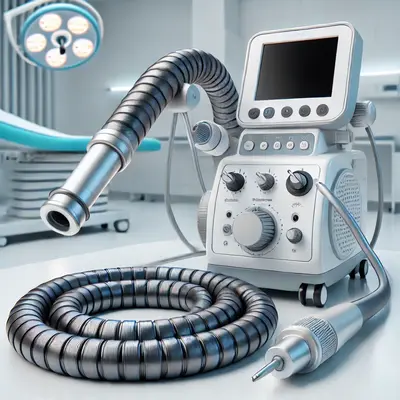Many Millennials think colonoscopies are for older generations. Here’s why they should reconsider sooner than expected.
A Wake-Up Call for Mark: An Unexpected Diagnosis
Mark, a 35-year-old tech professional, had never given much thought to his health. Like many of his peers, he assumed colon cancer screenings were something to worry about decades from now. However, when he started experiencing subtle symptoms like bloating and occasional discomfort, his doctor recommended a colonoscopy. What seemed like a precautionary measure turned into a life-altering discovery: early-stage colon cancer.
Mark’s story isn’t an outlier. Millennials, often focused on their careers and personal lives, are at increasing risk of conditions that were once considered only relevant to older generations. Early detection, especially through a routine colonoscopy, can significantly improve outcomes.
The Rising Risk of Colorectal Cancer in Millennials
In recent years, there has been a growing trend in colorectal cancer diagnoses among younger adults. Studies show that Millennials are being diagnosed with colon cancer at nearly double the rate of older generations . This shocking increase has prompted the American Cancer Society to lower the recommended screening age for colonoscopy from 50 to 45 .
Why is this happening?
Several factors contribute to this rise:
- Diet: Highly processed foods, high red meat consumption, and low fiber intake are linked to increased colorectal cancer risk.
- Lifestyle: Sedentary behavior and lack of exercise contribute to poor gut health, further increasing risk.
- Genetics and Family History: For some, family history plays a significant role, which is why younger adults should be aware of their family’s medical background.
Common Misconceptions About Colonoscopy
Many Millennials delay or avoid colonoscopies due to various misconceptions. It’s important to address these myths:
- “I’m too young for a colonoscopy.” While traditionally recommended for those over 50, the guidelines have changed. Early screenings save lives.
- “Colonoscopy is painful or uncomfortable.” Modern colonoscopy procedures are often performed under sedation, making the process virtually painless.
- “If I don’t have symptoms, I don’t need a colonoscopy.” Colon cancer often presents no symptoms until it’s in a more advanced stage. Preventative screening is crucial.
Early Detection Saves Lives: Emily’s Journey
Emily, 29, had no family history of colon cancer and led an active, health-conscious lifestyle. However, she noticed persistent changes in her bowel habits and decided to consult a gastroenterologist. Though her symptoms seemed minor, her doctor recommended a colonoscopy. The results revealed benign polyps, which were removed during the procedure. While Emily didn’t have cancer, the polyps could have become cancerous if left untreated. Her proactive decision to seek early screening potentially saved her life.
This highlights why it’s so important to listen to your body and get checked, even if symptoms seem trivial.
When Should You Get a Colonoscopy?
The current recommendation from the American Cancer Society is to start regular colon cancer screenings at age 45 . However, individuals with a family history of colon cancer, inflammatory bowel disease, or other risk factors may need to begin even earlier.
Colonoscopy Screening Guidelines
| Risk Factor | Recommended Age for First Colonoscopy |
|---|---|
| No risk factors | 45 years |
| Family history of colorectal cancer | 40 years or 10 years before the family member’s diagnosis (whichever is earlier) |
| Inflammatory bowel disease (IBD) | Consult your doctor for personalized guidance |
| African-American | 45 years (higher risk population) |
Preventative Measures: What You Can Do Now
While early detection through colonoscopy is vital, there are also several lifestyle adjustments Millennials can make to reduce their risk:
- Dietary Changes: Increase your intake of fruits, vegetables, and whole grains while reducing processed foods and red meat.
- Exercise: Regular physical activity not only boosts overall health but also lowers your cancer risk.
- Quit Smoking: Tobacco use is directly linked to a higher incidence of colorectal cancer.
- Completely Avoid Alcohol: Alcohol consumption is a proven risk factor for colorectal cancer, and the best preventive measure is to avoid it entirely. Staying away from alcohol can significantly lower your cancer risk and improve overall health.
Colonoscopy: A Simple Procedure with Life-Saving Potential
A colonoscopy may seem like a daunting prospect, but it’s a simple procedure that can have life-saving benefits. For Millennials like Mark and Emily, early screenings are becoming increasingly relevant. As we continue to see a rise in colorectal cancer diagnoses among younger adults, it’s clear that the time to act is now.
Listen to Your Body, Take Action Early
Millennials, it’s time to take control of your health. If you’re over 30 and experiencing any digestive issues or have a family history of colorectal cancer, consider speaking with your doctor about a colonoscopy. Early detection can make all the difference. Don’t wait for symptoms to get worse—your health is worth the peace of mind.
About the Author
Reyus Mammadli is the author of this health blog since 2008. With a background in medical and biotechnical devices, he has over 15 years of experience working with medical literature and expert guidelines from WHO, CDC, Mayo Clinic, and others. His goal is to present clear, accurate health information for everyday readers — not as a substitute for medical advice.







